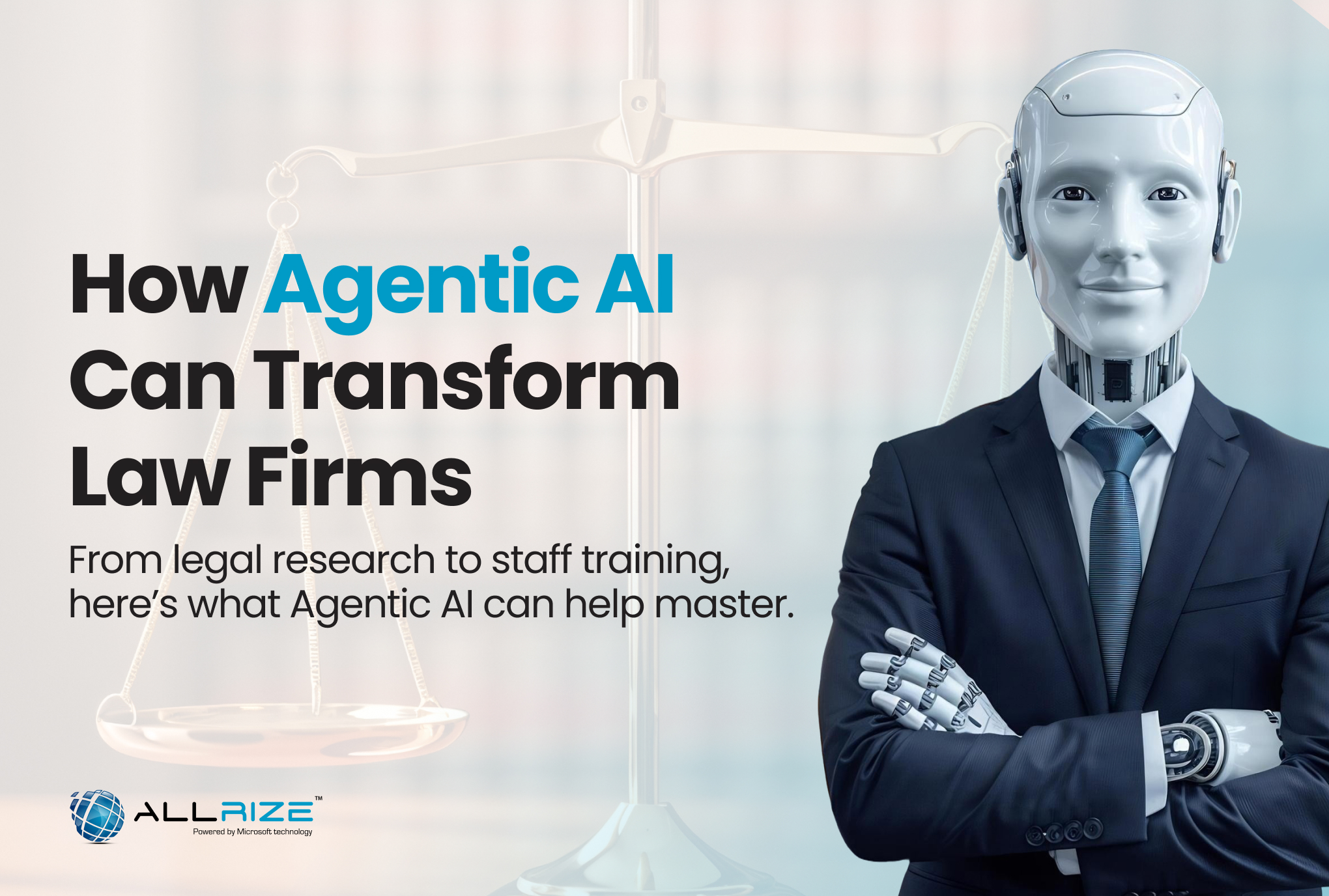Artificial intelligence (AI) is already reshaping the legal profession, but a more powerful evolution is emerging on the horizon: agentic AI. Unlike traditional AI tools that require human prompts and oversight for every task, agentic AI acts more like a digital colleague. For law firms looking to increase efficiency and stay competitive, the rise of agentic AI represents a profound opportunity and a significant shift in how legal work gets done.
First, What is Agentic AI?
Agentic AI refers to AI systems that are capable of operating autonomously. They can make decisions and take actions to achieve specific goals with limited human intervention. These systems can perceive their environment, reason about it, act, and learn from their actions to improve over time. For example, when a new intake form comes in, rather than having an administrator having to copy the form into AI and manually prompt for a review; Agentic AI could automatically review, summarize and make a recommendation for the firm to either accept or reject.
What makes agentic AI systems unique are their ability to exercise agency. They can set goals, plan actions, and take steps to achieve outcomes. These systems present huge opportunities for efficiency in the practice of law.
Agentic AI in Law Firms
While we are still in the early stages of agentic AI, the technology is moving fast, and clear use cases for law firms are emerging.
End-to-End Matter Management
Today, matter management still involves a lot of manual work at most law firms. Agentic AI could track a case or transaction from intake to close by handling intake forms, assigning work, generating checklists, and preparing drafts. Just like a human, agentic AI can be trained on what to do with a specific type of case when it comes through the door and shepherd it through the process.
Staff Training
Staff training remains one of the biggest hurdles to hiring and onboarding attorneys and legal staff. Training takes expensive resources and a time investment that most attorneys do not have. Agentic AI can act as a law firm’s full-time onboarding expert and train staff on a variety of tasks and skills including document formatting, operating internal systems, and navigating attorney approval processes. From walking through processes and procedures to answering novel questions, agentic AI can take staff training off of an attorney’s plate entirely.
Legal Research and Strategy
AI is already changing the game with legal research, but it is still dependent on human prompts. Agentic AI will be able to, like a human, deduce what type of research is necessary when it gets the details of a case, no human prompt necessary. It will also be able to strategize and determine what type of case law is most helpful to the client’s position.
While this capability will save lawyers time, it is not intended to wholly replace the strategic expertise and judgment of experienced lawyers. Recent high-profile cases of inaccurate AI-generated legal research demonstrate that agentic AI must be properly trained and thoroughly tested, and its accuracy will continue to improve as the technology matures. Responsible firms will balance innovation with rigorous oversight to maintain trust and quality.
Legal Assistants
Legal assistants are often some of the most valuable employees in a law firm. They help keep the trains running, think ahead and anticipate what is needed before it is due, and keep attorneys organized. Agentic AI may soon be able to fill the manual, drudgery of this role. Just like a human legal assistant, agentic AI systems will be able to learn over time what attorneys need and complete tasks such as monitoring deadlines, managing task lists, organizing case files, and flag missing client information. Lawyers will be able to scale the performance of their existing staff, enabling legal assistants to pivot to other high-value work.
Business Development
Most law firms could benefit from a business development assistant who monitors legal industry trends, regulatory updates, and client activity to identify opportunities for outreach or new service offerings. Agentic AI will soon be able to fill that void. Additionally, firms will be able to integrate a business development agent with their CRM and content platforms so it can draft personalized client alerts, suggest topics for thought leadership, and even generate tailored proposals based on practice area strengths and client needs.
Agentic AI offers distinct business advantages across the spectrum of firm sizes. Large law firms can use it to efficiently manage the high volume and complexity of matters across diverse practice areas. Smaller firms, on the other hand, can leverage agentic AI to deepen client relationships by delivering more personalized, responsive service without increasing overhead.
Final Thoughts
Agentic AI is not a distant vision, it is happening right now. As with any new technology, there are implementation, confidentiality, and ethical issues to take into consideration when deploying agentic AI. It should be deployed to assist, not replace, attorneys. Additionally, firms must deploy agentic AI at their own pace and in a way that fits the needs of their particular practice. A good starting place is to work with a trusted partner to explore options and formulate a responsible implementation plan.
Agentic AI is poised to empower attorneys to do more than ever before, and firms that invest early in understanding and responsibly integrating this technology will be better positioned to lead the profession into its next era of innovation.

